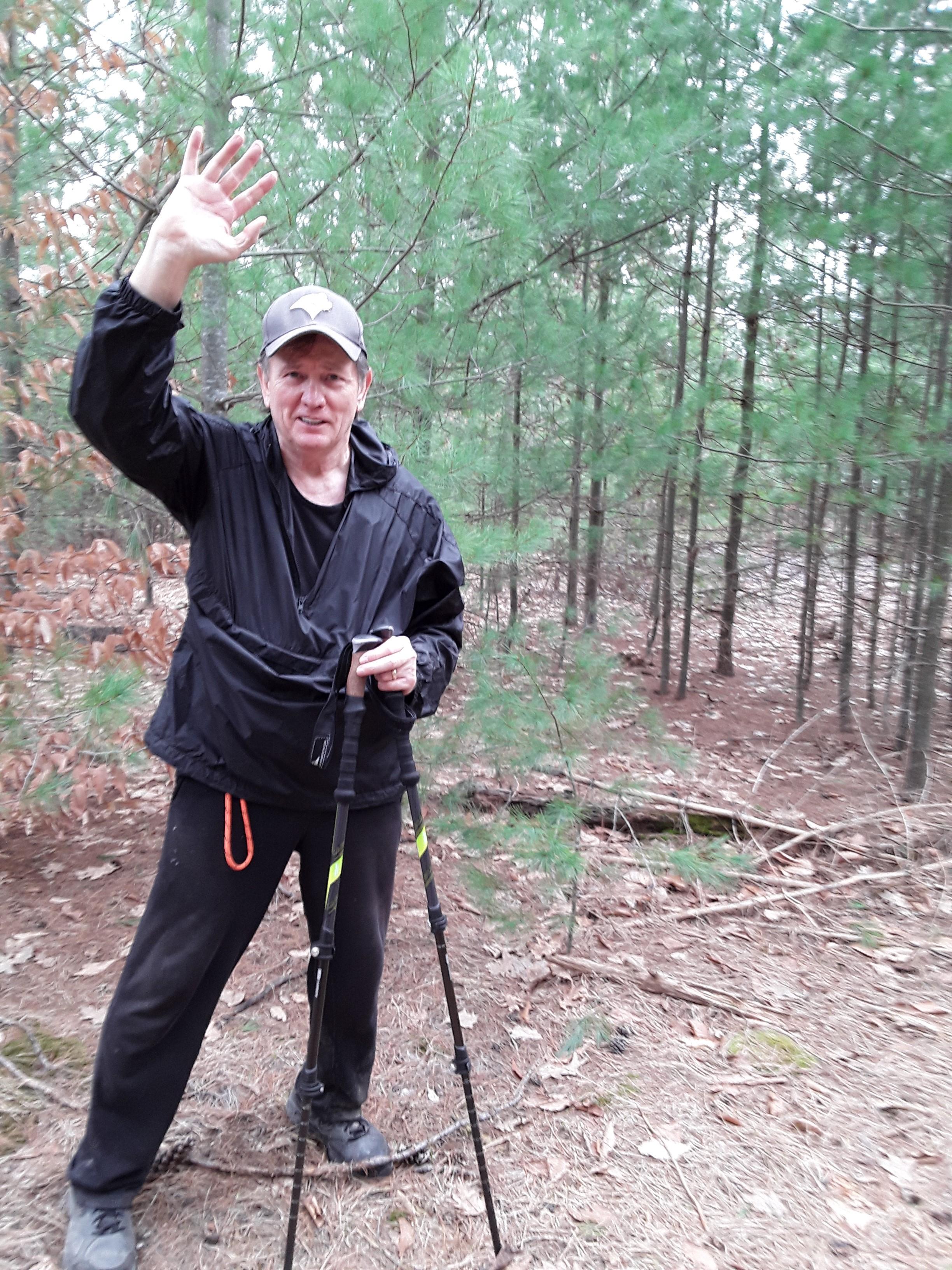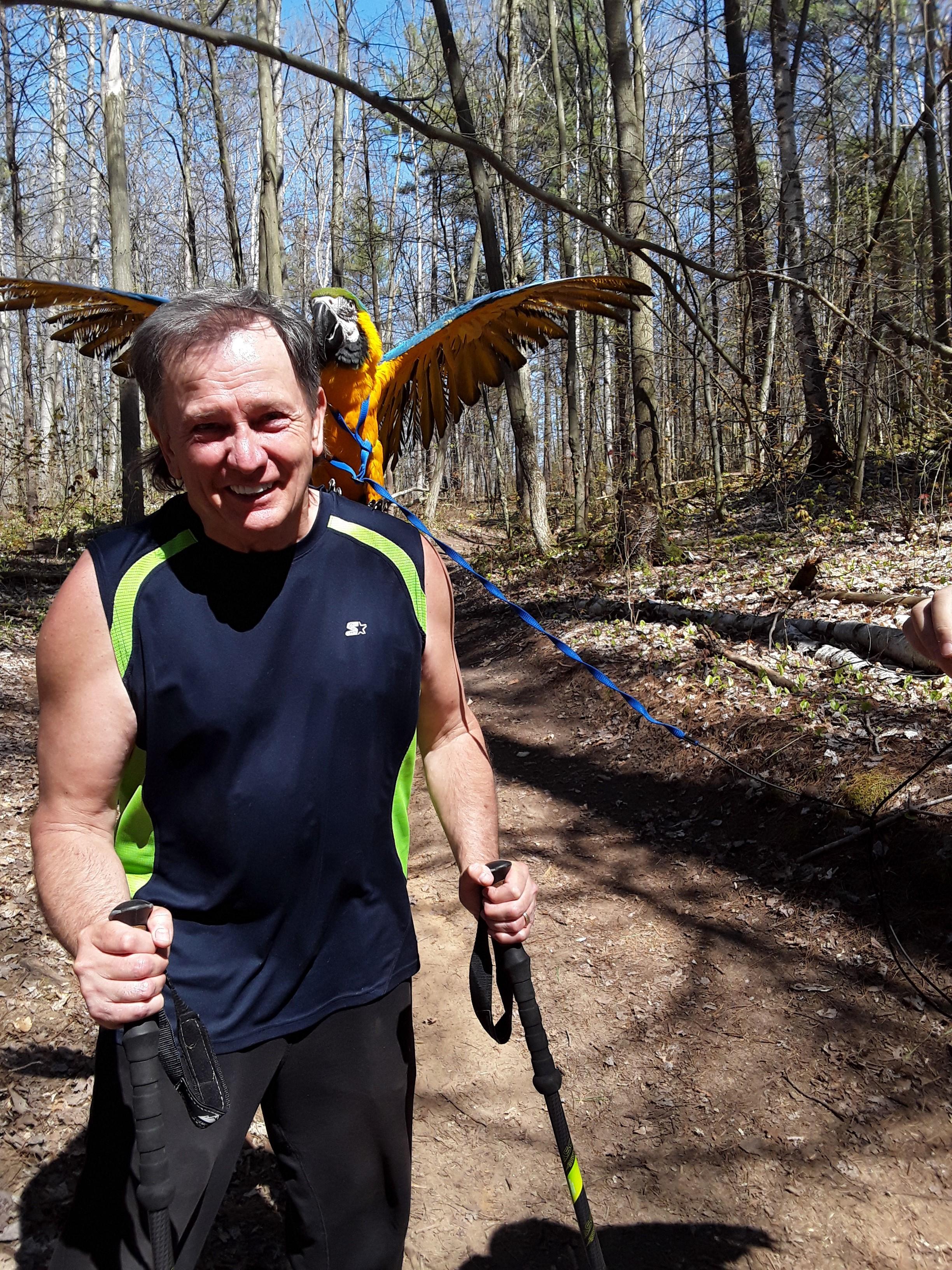- From the Community
- February 28, 2024
Navigating Life with MS: Eric's Story of Resilience
"I wasn’t officially diagnosed with MS until the fall of 1996. It was a stressful time in my life. I’d just purchased a new home and my application for mortgage insurance on a house was denied due to my diagnosis. During that time, my mother passed away, I worked in a stressful child protection job, and was going through a messy divorce— all while trying to provide for my two young children. I often wonder if the stress of all these life changes contributed to my diagnosis.
MS can bring a lot of different types of losses in one’s life. As my MS progressed, I felt ‘less of a man’ in that I went from enjoying various sports and activities, to watching sports on television. I went from cycling in the Blue Ridge Mountains of Virginia, to not being able to cycle anymore. I’m also no longer able to drive.
Initially, I knew nothing about MS. I became worried and scared as more people offered their opinions about the disease. I also became angry. Why did this happen to me? I was a fit, healthy 39-year-old. Walking into a mall or simply a room full of strangers brought out the inevitable downward pity glances. Well-meaning people would sometimes rush to open a door for me. Once, a pregnant woman sweetly insisted that I could have her seat on a bus. Numerous people, mainly men, would ask if I had a sporting injury. Sometimes I would get asked if I had been in a car accident. If they persisted, I would simply say that I have MS and they would blankly nod and walk away – perhaps not sure what it was.

I've faced cognitive decline and mobility issues, but I choose to maintain a positive attitude. I’ve learned to keep my head up, straighten my posture, and politely reassure others that I’m okay to get through most situations. Life isn't what it used to be, but I refuse to let MS define me. I have MS, but MS doesn't have me. I walk with a cane or use two walking sticks for stability and recently started wearing a diaper for precaution. It's a different reality, but life goes on. I try to strengthen my body by using free weights (20 lbs). I can still cut our grass with a push lawnmower (because it provides stability) and can also do lots of yard work. It just takes me a bit longer than others. I’m retired now so I can take breaks whenever I want and what I don’t get done today, I can do tomorrow.

Volunteering at a retirement home, weekly MS support group meetings, and finding joy in small pleasures like watching hockey and baseball is what keeps me going. It takes more effort to frown than smile. I’ve never been a ‘woe is me’ type of person. I try to live life to the best of my abilities with a positive attitude. I’m certainly not perfect, but I have a strong sense of gratitude for being alive.
Dealing with challenges head on is the key. With this mindset, I've been able to work in counseling agencies, hold my private practice, and supervise social workers for more than 35 years. and I also completed two more degrees in the social work field! Of course, there are always moments of grief and adaptation, but I’m very fortunate to have a strong support system consisting of my wife, my two adult children, friends, and neighbours.
Living with MS has taught me that we’re all imperfect to some degree or another. Life isn’t always fair, but you need to deal with the challenges life throws at you the best you can. I think it’s so important for people who are recently diagnosed to grieve, be patient, educate themselves, stay mobile, and connect with MS support groups. Life with MS is a journey. Focus on the gains in research, the power of hope, and the small pleasures in life.”
- Log in to post comments

